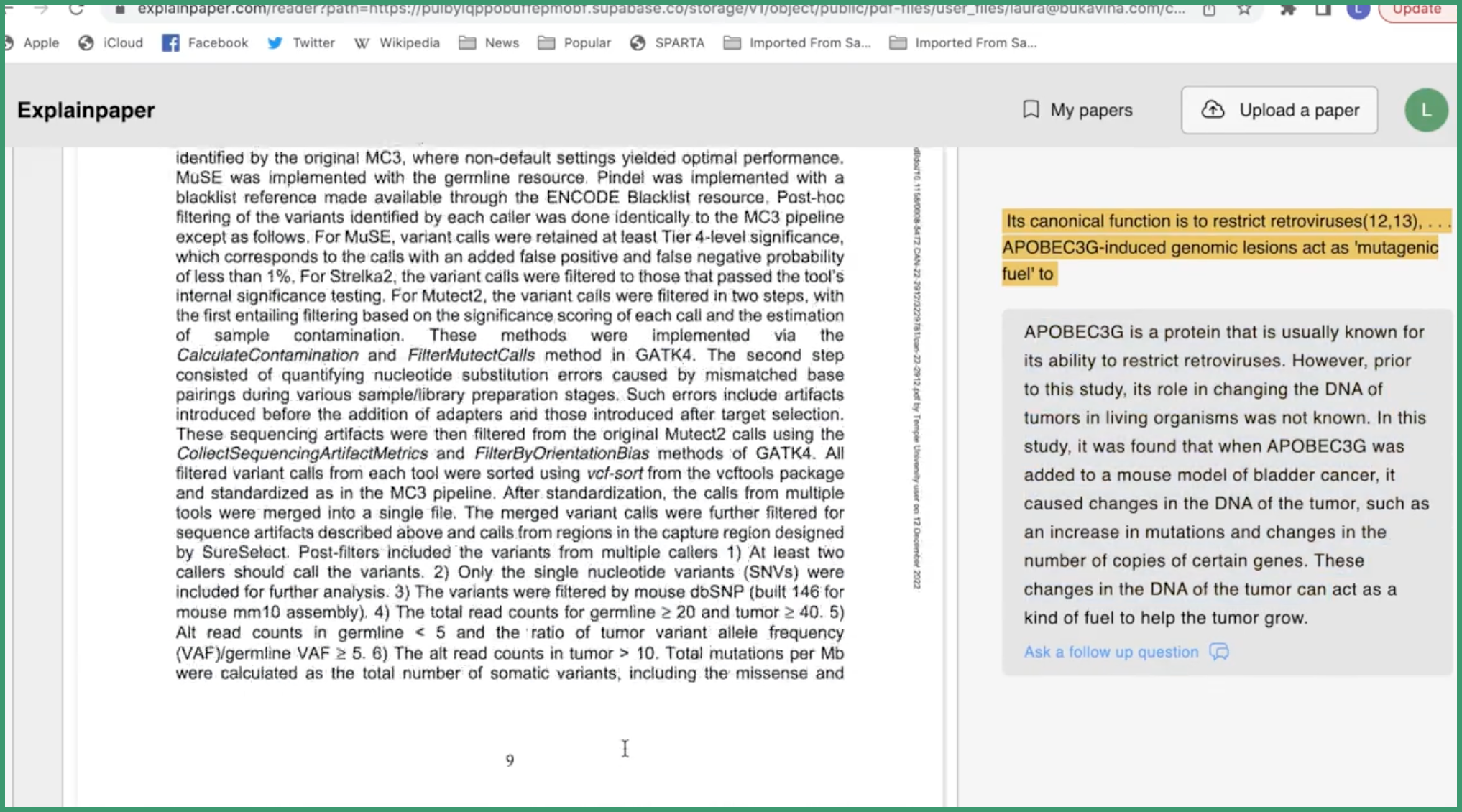Good Morning from San Francisco,
OpenAI wants to fix AI cheating—with the honor system.
Study Mode turns ChatGPT into a tutor, walking students through problems step-by-step instead of handing out answers.
But there’s a catch: students can switch back to regular ChatGPT anytime. No locks. No restrictions.
So yes, OpenAI is solving academic dishonesty by trusting students not to cheat. What could go wrong?
Stay curious,
Marcus Schuler
OpenAI's Study Mode Won't Stop Students From Cheating

OpenAI launched Study Mode for ChatGPT on Tuesday, transforming the chatbot from an answer machine into something resembling a patient tutor. The feature guides students through problems step-by-step using Socratic questioning instead of spitting out ready-made solutions.
The timing isn't coincidental. UK universities recorded nearly 7,000 proven AI cheating cases in 2023-24, up from just 1,600 the year before. OpenAI now wants to position itself as part of the solution rather than the entire problem.
Study Mode refuses direct answer requests and breaks complex topics into digestible chunks. When students ask "just give me the answer," it politely declines and explains that learning requires effort. The feature adjusts to individual skill levels through quick assessments.
But here's the obvious flaw: students can toggle back to regular ChatGPT anytime they want instant answers. OpenAI offers no administrative controls to lock students into the learning-focused mode.
The company joins a crowded field chasing the $80.5 billion education AI market. Anthropic launched Learning Mode for Claude in April, while Google made its AI Pro subscription free for students.
Why this matters:
• OpenAI is trying to solve an academic integrity crisis that its own technology created, but success depends entirely on student willpower
• The race for education AI dominance is heating up fast, with no clear winner in a market worth billions

AI Image of the Day

Prompt:
A high-fashion beauty portrait of a woman with
striking, vibrant blue eyes gazing intensely forward, bold smoky eye makeup, thick black eyeliner, and glossy, deep-red lips parted slightly, holding a glossy of exactly matching deep-red color gently resting on her tongue. Her hair is ravenwhite, sleek, and styled in a sharp, tight bob with short, blunt-cut bangs framing her face. Dramatic studio lighting highlights her flawless skin, bold makeup, and emphasizes the luxurious harmony of the matching red tones of her lips and the cherry. High-resolution, editorial style, professional photography, glamorous and provocative mood. Cuerpo entero con los pies descalzos
Meta's $14 Billion AI Panic After DeepSeek Copy Fails

Meta thought it could copy a Chinese startup's AI breakthrough and beat OpenAI at their own game. Instead, the company crashed so hard that Mark Zuckerberg is now throwing $14 billion at the mess.
The social media company tried to mimic DeepSeek's techniques for Llama 4. Big mistake. Developers found the new model clunky and frustrating compared to Llama 3. Most stuck with the older version rather than wrestle with Meta's "improvement."
Zuckerberg's response was swift and expensive. In June, Meta invested $14.3 billion in Scale AI, acquiring a 49% stake and bringing CEO Alexandr Wang aboard as chief AI officer. The company also poached researchers from OpenAI, Apple, and Google with compensation packages reportedly hitting $100 million.
The spending spree comes as Meta faces its slowest growth in two years. Second-quarter results are expected to show just 11.5% profit growth while operating costs jumped 9% from AI investments.
Meta now questions its open-source strategy and may skip releasing the promised "Behemoth" version of Llama 4. The company is considering proprietary models instead - a major shift from its previous approach.
Why this matters:
- Copying AI techniques looks easy on paper but fails when developers actually use your product - Meta learned this the hard way
- Spending $14 billion to fix one bad decision shows just how much money companies will burn to stay competitive in AI

🧰 AI Toolbox
How to Understand Complex Research Papers

Explainpaper explains confusing parts of research papers in simple English. Highlight text you don't understand and get clear explanations. Makes academic papers accessible to everyone.
Tutorial:
- Go to the Explainpaper website
- Upload the research paper you want to read
- Highlight confusing text or technical terms
- Get simple explanations in plain English
- Ask specific questions about the paper
- Save your notes and highlights
- Share papers and collaborate with others
URL: https://www.explainpaper.com/
Better prompting...
Today: Sensitive Communication Protocol Design
Develop a comprehensive internal communication protocol for managing sensitive organizational situations while maintaining strict confidentiality and appropriate messaging.
Context and Scope:
- Organization type: [Specify: startup, mid-size company, enterprise, non-profit, etc.]
- Sensitive situations may include: layoffs, mergers/acquisitions, legal investigations, data breaches, executive departures, financial difficulties, regulatory issues, or workplace incidents
- Protocol should cover both planned and crisis communications
Required Protocol Elements:
- Communication hierarchy and approval chains - Who must approve messages before distribution
- Stakeholder mapping - Internal audiences (employees, leadership, board) and external parties (media, clients, regulators)
- Information classification system - Levels of sensitivity and corresponding handling procedures
- Timing and sequencing guidelines - When and in what order different groups should be informed
- Channel security requirements - Which communication methods are appropriate for different sensitivity levels
- Message templates and tone guidelines - Sample language for common scenarios
- Documentation and record-keeping standards - What must be logged and how
- Escalation procedures - When to involve legal, HR, or external advisors
- Training and awareness requirements - How to ensure all relevant staff understand the protocol
Deliverable Format:
Create a structured document with clear procedures, decision trees, contact lists, and quick-reference guides that can be easily implemented and regularly updated.
AI & Tech News
Gen Z Uses AI Daily, Boomers Still Writing Their Own Emails
Young Americans use AI at a 74% rate compared to 60% overall, with 28% searching for information multiple times daily, but only 40% of Americans actually use AI for work despite years of Silicon Valley productivity promises. The survey reveals people treat AI like a selective buffet—they'll ask ChatGPT for meal planning but skip it for medical advice, creating their own rules instead of following the tech industry's script.
Search Just Got Smarter: Video Questions and Document Analysis Roll Out
Google is rolling out four major updates to AI Mode, including video input that lets you show the AI what you're seeing through your camera and PDF upload capabilities for asking detailed questions about documents. The company is also adding a Canvas feature for building study guides and trip plans across multiple sessions, plus bringing AI Mode to desktop Chrome where you can analyze web pages directly.
Yelp Turns Your Food Photos Into AI-Narrated Restaurant Videos
Yelp now uses AI to automatically create TikTok-style videos about restaurants by stitching together user photos and reviews with computer-generated narration and captions. Users can't opt out of having their content repurposed, and business owners can't see what videos Yelp creates about their establishments, though anyone can report videos they find inaccurate or offensive.
Palo Alto Networks Eyes $20 Billion CyberArk Deal This Week
Palo Alto Networks is in talks to acquire Israeli cybersecurity firm CyberArk for over $20 billion, potentially closing the deal this week in what would mark one of 2025's largest tech takeovers. CyberArk shares jumped 13% while Palo Alto dropped 5% as investors weighed the massive bet on consolidating cybersecurity tools under one roof rather than the current fragmented approach.
Oops: Substack Sends Nazi Content Alerts, Calls It Technical Error
Substack accidentally sent push alerts to users Monday promoting a Nazi newsletter that advocates for a "White homeland" and calls Jewish people a sickness, with the company later apologizing and blaming a technical error. The mishap promoted "NatSocToday," which has 746 subscribers and sits alongside other extremist content that Substack has repeatedly declined to remove despite ongoing criticism from writers and users.
Revolut Eyes US Bank Purchase After UK Licensing Limbo Drags On
Revolut is considering buying a US bank to fast-track getting an American banking license, as the UK fintech remains stuck in regulatory limbo three years after first applying for full banking rights in its home country. The move would let Revolut expand lending in America while it continues waiting for UK regulators to lift restrictions that have kept its British banking operations in a "mobilization" phase for over 12 months.
Small AI Group Scores Perfect Policy Win, Gets All Recommendations Into Trump Plan
ARC Prize Foundation achieved what most Washington lobbyists can't by getting all three of their AI policy recommendations into Trump's AI Action Plan, focusing on who controls the measurement standards that determine AI progress. The rare policy victory shows technical expertise now beats traditional lobbying when politicians need to defer to experts who can explain complex technology issues.
Russia's Everything App Arrives as Kremlin Targets Foreign Messaging Services
Russia unveiled "Max," a government-controlled everything app that handles messaging, finances, and government services, as the Kremlin announced likely restrictions on WhatsApp and other foreign platforms from "unfriendly" countries. The app, built by state-controlled VK Co. and lacking end-to-end encryption, gives Putin's government unprecedented surveillance power over Russians' digital lives as the country accelerates its push for complete "digital sovereignty" since invading Ukraine.
Ramp Jumps to $22.5 Billion Valuation Just Month After $16 Billion Round
Corporate spending platform Ramp raised $500 million at a $22.5 billion valuation, marking a 40% jump from its $16 billion valuation just over a month ago. The company, which offers corporate cards and expense management tools, has now raised $1.9 billion total as businesses rush to modernize their financial operations.
🚀 AI Profiles: The Companies Defining Tomorrow
Ramp: The Corporate Card That Actually Saves Money 💳

• The Founders
Eric Glyman, Karim Atiyeh, and Gene Lee launched Ramp in March 2019 from Manhattan's Flatiron District. The Harvard duo previously sold price-tracker Paribus to Capital One, where they met Lee. Now 700+ employees strong, they interviewed 100 finance leaders before writing a single line of code.
• The Product
Ramp's all-in-one platform combines corporate cards (1.5% cashback, no fees) with expense automation, bill payments, travel booking, and AI-powered finance tools. Core strengths: real-time spend controls, automatic receipt matching, policy violation detection, and vendor negotiation services. Their AI agents now work 24/7 catching expense fraud and rebooking cheaper flights.
• The Competition
Ramp battles Brex (rewards-heavy), Airbase (software-first), Bill.com's Divvy (SMB-focused), and legacy giants like Amex. Ramp's edge: breadth over depth. While others focus on cards or software, Ramp built the entire CFO stack. They're processing 1% of all US corporate card transactions.
• Financing
Founders Fund led five funding rounds. Latest raise: $500M Series E-2 at $22.5B valuation (July 2025). Total raised: $1.9B from Stripe, Thrive, Sequoia, GIC, and others. Cash-flow positive since 2025 with $700M revenue run-rate.
• The Future ⭐⭐⭐⭐⭐
Ramp cracked the code on finance automation just as AI went mainstream. With 40,000+ customers processing $80B annually, they're approaching IPO territory. The bet on autonomous finance workflows could reshape how every company handles money. 🚀
Bottom line: Ramp makes expense reports extinct while printing money.









